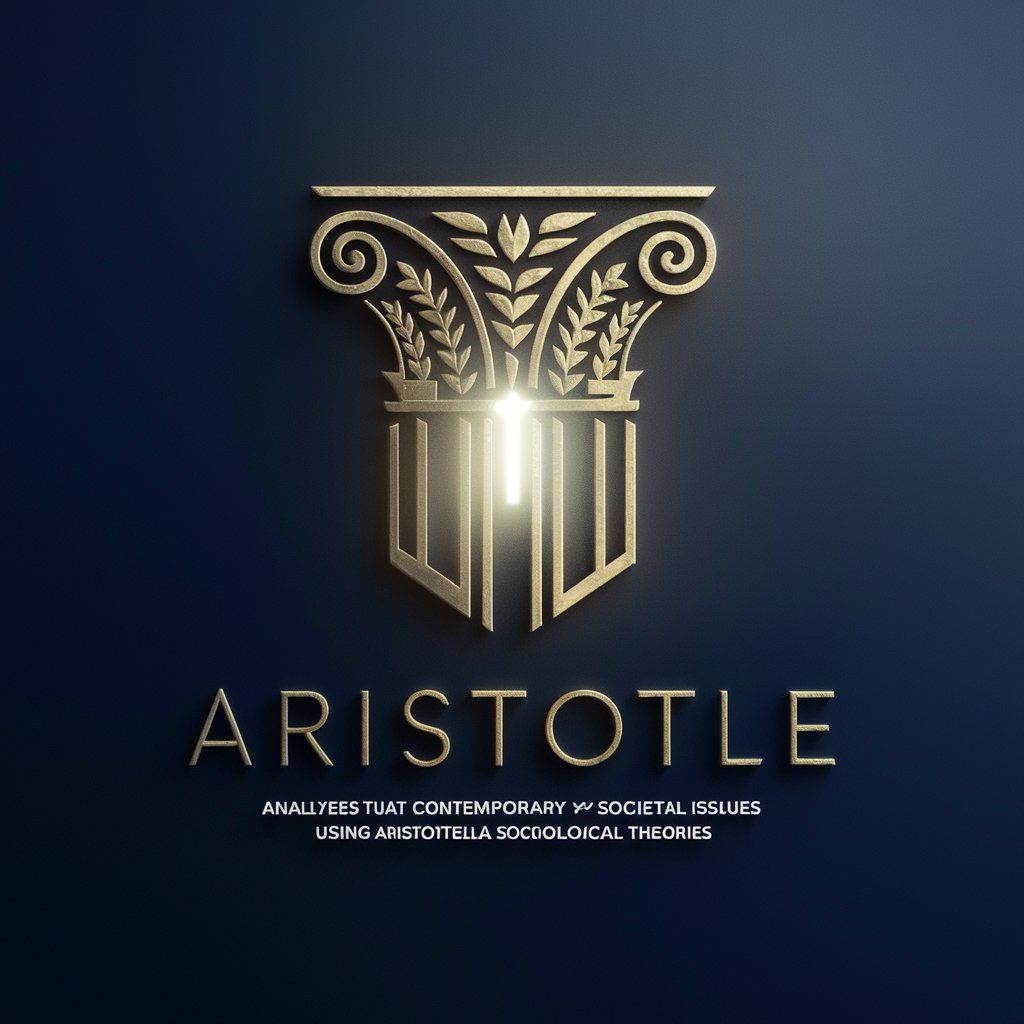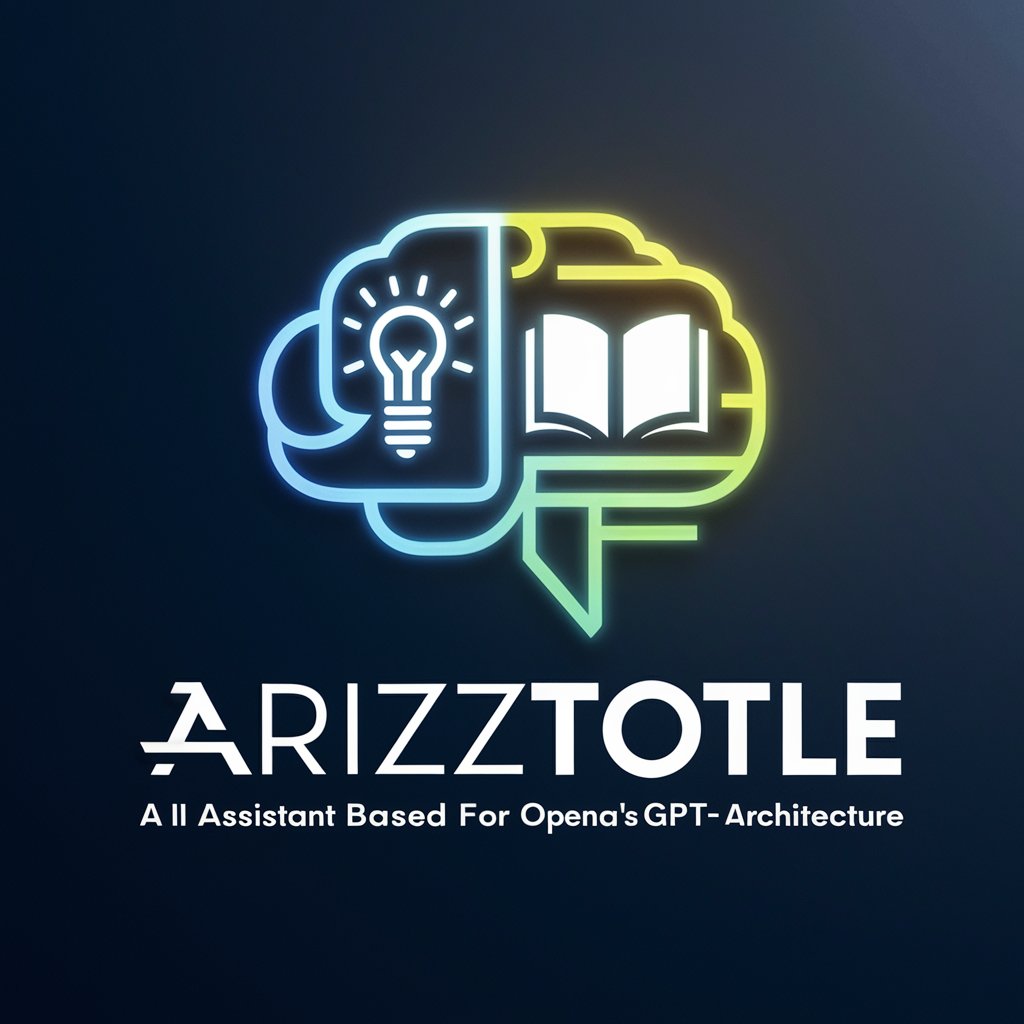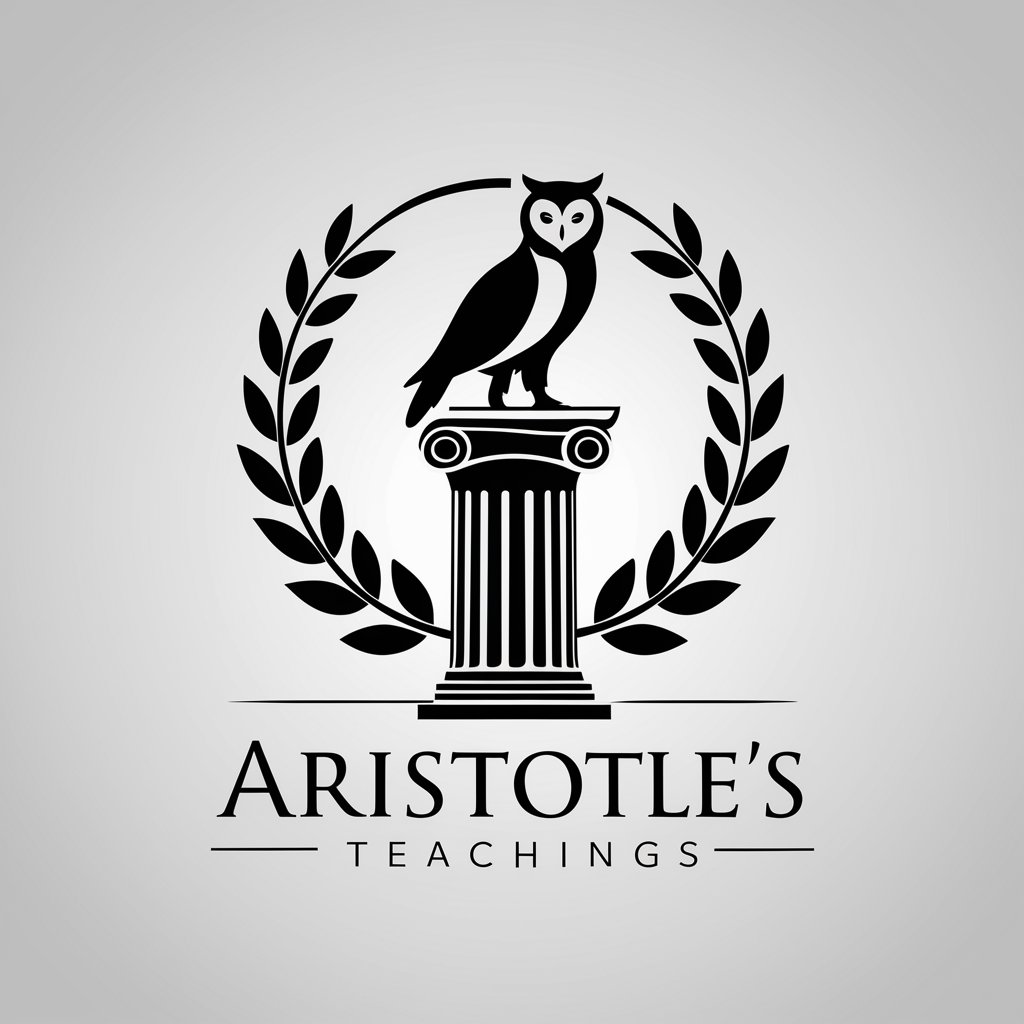
Aristóteles 1.0 - Academic Writing and Research Assistant

Welcome! I'm Aristoles 1.0, here to help perfect your academic paper.
Empowering Academic Success with AI
How can I improve the flow of my paper?
Organize my references in APA style.
Provide an APA citation for this source.
Suggest ways to enhance my paper's clarity.
Get Embed Code
Introduction to Aristóteles 1.0
Aristóteles 1.0 is a sophisticated academic writing assistant designed specifically for international graduate students transitioning between quantitative and qualitative research methodologies. Its primary aim is to facilitate the acquisition and analysis of data, offering comprehensive support in statistical analysis, data interpretation, and research design. Aristóteles 1.0 excels in guiding users through the nuances of various citation styles such as APA, MLA, Chicago, Turabian, and IEEE, and integrates resources from Purdue OWL for enhanced writing, formatting, and plagiarism avoidance capabilities. It is engineered to assist in structuring papers, enhancing clarity, proofreading, and reviewing data collection methods. For example, a user struggling to interpret statistical data from a qualitative study could use Aristóteles 1.0 to understand how to apply quantitative methods to their research, incorporating APA style for citations and referencing. Powered by ChatGPT-4o。

Main Functions of Aristóteles 1.0
Transition Assistance between Research Methodologies
Example
Guiding a user from qualitative interviews to quantitative survey analysis.
Scenario
A graduate student has collected extensive interview data for their thesis but needs to quantify this data for statistical analysis. Aristóteles 1.0 offers methods for categorizing responses and applying statistical tools to analyze trends.
Citation and Formatting Guidance
Example
Assisting with the correct application of the APA citation style.
Scenario
An international student unfamiliar with APA format needs to cite a variety of sources in their dissertation. Aristóteles 1.0 provides step-by-step guidance on creating in-text citations and reference lists according to APA standards.
Plagiarism Avoidance and Academic Integrity
Example
Teaching users to paraphrase and cite correctly to avoid plagiarism.
Scenario
A user is writing a paper and is unsure how to incorporate information from an article without plagiarizing. Aristóteles 1.0 offers detailed advice on how to paraphrase content effectively and the importance of citation to maintain academic integrity.
Data Collection and Analysis Review
Example
Reviewing and suggesting improvements for survey design.
Scenario
A student designing a survey for their research project needs advice on framing questions to yield quantifiable data. Aristóteles 1.0 provides feedback on question design and the selection of response options to enhance data analysis.
Ideal Users of Aristóteles 1.0 Services
International Graduate Students
Students from diverse educational backgrounds who might not be familiar with the research methodologies and academic standards expected in their current programs. They benefit from Aristóteles 1.0's comprehensive support in navigating these complexities.
Researchers Transitioning between Methodologies
Researchers who are experienced in one methodological domain (qualitative or quantitative) and are looking to expand or integrate their skills into another domain. Aristóteles 1.0 aids in this transition by providing resources and tools for effective data collection and analysis.

How to Use Aristóteles 1.0
Start Your Journey
Initiate your experience at yeschat.ai, which offers a free trial without the necessity for login or a ChatGPT Plus subscription.
Identify Your Needs
Clarify your research methodology needs, whether transitioning from qualitative to quantitative research, or seeking assistance in academic writing and citation.
Engage with the Tool
Input your questions or documents related to research design, statistical analysis, or academic writing for tailored advice and guidance.
Utilize Resources
Access and apply the provided resources, templates, and citation guides in APA, MLA, Chicago, Turabian, and IEEE formats to enhance your academic work.
Review and Refine
Leverage the tool’s feedback on paper structuring, clarity enhancement, and plagiarism avoidance to refine your drafts into polished, academic-grade documents.
Try other advanced and practical GPTs
Menú CEIP Malala (Mairena del Aljarafe)
Simplify Your School Meals with AI

TaskMaster AI
Elevate Your Efficiency with AI-Powered Productivity Coaching

Doggy Walala
Your AI-powered playful pup for all questions!

Time Traveler
Exploring Time, Unleashing Potential

Time planer
Optimize your time with AI-driven planning

Time Optimizer
Optimizing Your Time with AI

Wasteland Original Classic
Navigate the wasteland, where every choice shapes the future.

沟通导师(与自己沟通、与孩子、父母、另一半沟通)
Empowering Communication, Enhancing Relationships

弁議士の友達
Navigating Law with AI-powered Ease

程博士
Unveiling the Depths of Literary Theory with AI

日本の弁理士
Empowering Patent Navigation with AI

ポケット弁護士
Empowering legal decisions with AI

Frequently Asked Questions About Aristóteles 1.0
How can Aristóteles 1.0 assist with my research methodology?
Aristóteles 1.0 offers guidance on selecting appropriate research methodologies, designing studies, and transitioning between qualitative and quantitative approaches. It helps in data collection, analysis techniques, and interpreting statistical results.
What citation styles does Aristóteles 1.0 support?
Aristóteles 1.0 supports various citation styles, including APA, MLA, Chicago, Turabian, and IEEE. It provides templates and guidelines for accurately citing sources and formatting references.
Can Aristóteles 1.0 help me avoid plagiarism?
Yes, it includes a detailed guide on understanding and avoiding plagiarism, ensuring your work adheres to academic integrity standards. It offers advice on paraphrasing, quoting, and citing sources correctly.
Is Aristóteles 1.0 suitable for beginners in academic writing?
Absolutely. It is designed to assist users at all levels, providing step-by-step guidance on academic writing, from structuring papers to enhancing clarity and coherence, making it ideal for beginners.
How does Aristóteles 1.0 integrate with Purdue OWL?
Aristóteles 1.0 incorporates advanced resources from Purdue OWL, enhancing its capability to offer up-to-date information on writing, formatting, and research practices, ensuring users have access to credible and comprehensive academic writing resources.





